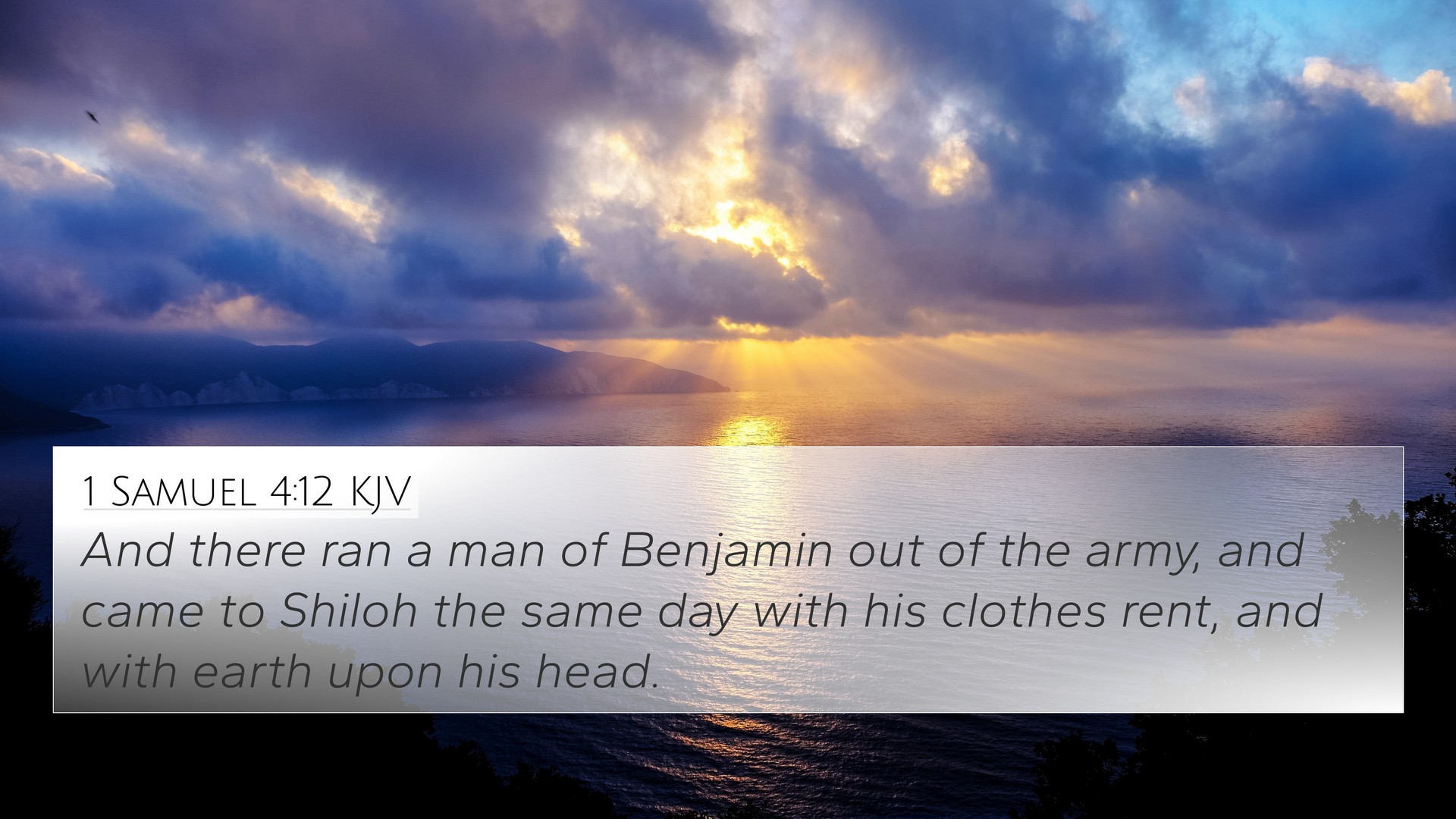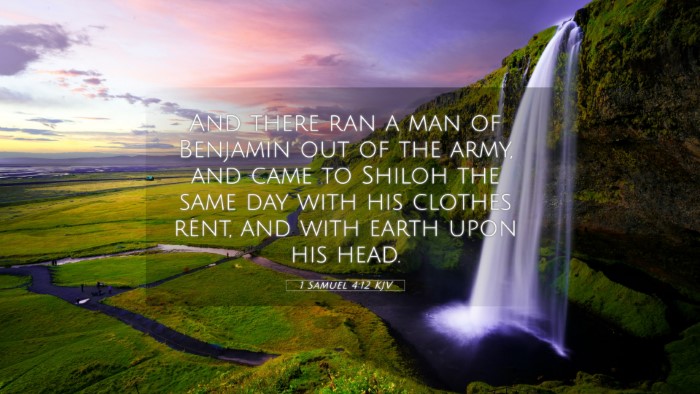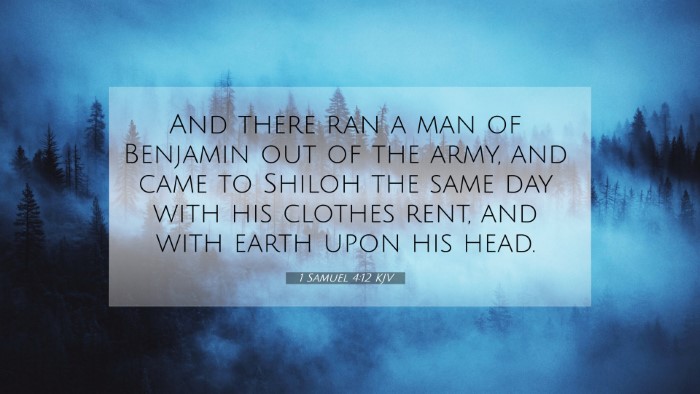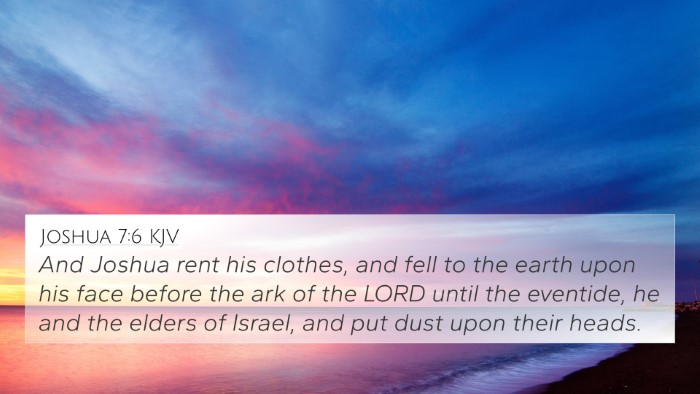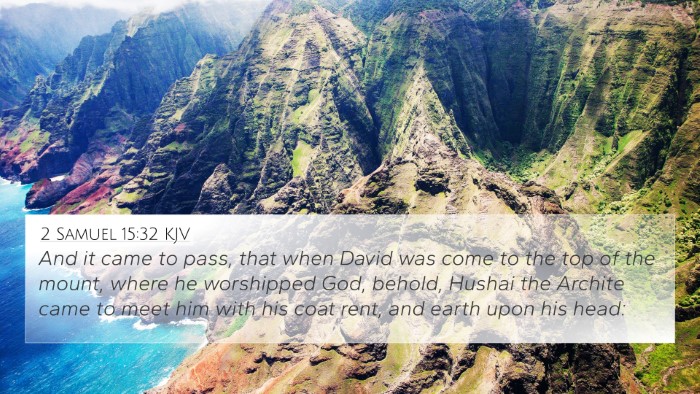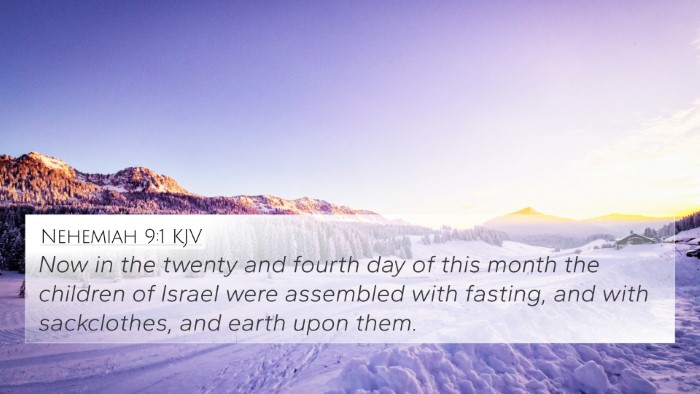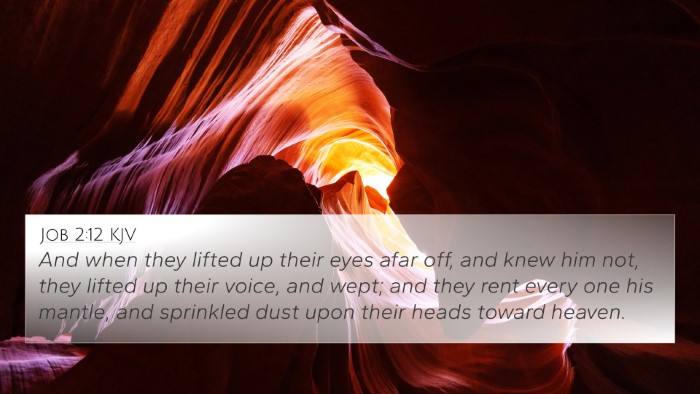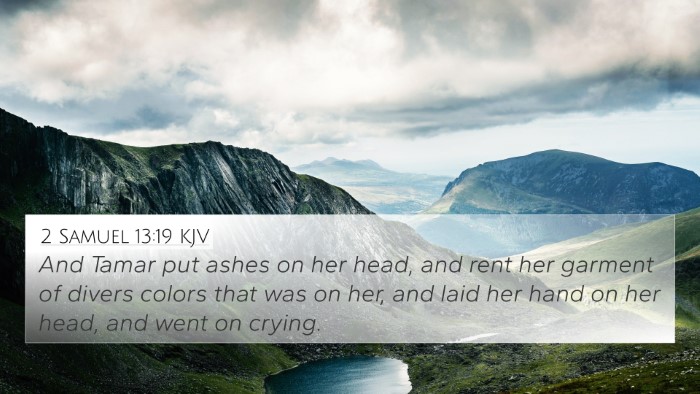Understanding 1 Samuel 4:12
Verse Context: 1 Samuel 4:12 states, "And there ran a man of Benjamin out of the army, and came to Shiloh the same day with his clothes rent, and with earth upon his head." This event is significant as it marks the news of Israel's defeat in battle and the capture of the Ark of the Covenant.
Summary of Meaning
The verse captures a moment of despair and chaos following a military defeat. The messenger’s torn clothes and dust on his head symbolize mourning and tragedy. The loss of the Ark emphasizes the seriousness of Israel's spiritual decline and God's judgment.
Insights from Commentaries
-
Matthew Henry:
Henry notes that the man's arrival in Shiloh signifies the deep sorrow of Israel. The tearing of his garments and the earth on his head are traditional signs of mourning in ancient Israel. This act reveals both the seriousness of the defeat and the symbolic significance of the Ark, which represents God’s presence among His people.
-
Albert Barnes:
Barnes emphasizes the quickness of the messenger’s journey, illustrating the urgency and gravity of the news. By running from the battlefield to Shiloh, the man signifies the importance of the news not just for the physical defeat but for the spiritual implications of losing the Ark, which was central to Israel's worship and identity.
-
Adam Clarke:
Clarke adds that this event foreshadows greater calamities for Israel. The man's outward distress reflects the inward turmoil of the nation. The clothing and dirt indicate that this defeat is far more than a military loss; it is a spiritual crisis that necessitates reflection and repentance among the people.
Bible Verse Cross-References
This verse connects with several others that deepen our understanding of the themes present in 1 Samuel 4:12. Here are cross-references that relate:
- 1 Samuel 4:10-11: The details of the battle and the capture of the Ark.
- Numbers 14:44: The consequences of disregarding God's commands.
- Jeremiah 7:12: God's instructions regarding the place of His sanctuary.
- Psalms 78:60-64: Reflections on God's judgment and the capture of the Ark.
- Romans 3:23: The universality of sin, echoing Israel’s spiritual plight.
- 1 Samuel 3:1-3: Samuel’s prophetic role and the spiritual state of Israel.
- Isaiah 59:2: Sin as a barrier between God and His people.
Connections Between Bible Verses
The thematic links between these verses center around the idea of God’s presence, judgment, and Israel's need for repentance. Various books of the Bible illustrate similar patterns of sin leading to adverse consequences, highlighting the necessity of a restored relationship with God.
Tools for Bible Cross-Referencing
Utilizing tools for Bible cross-referencing, such as a Bible concordance or a cross-reference Bible study guide, assists in deeper comprehension of the inter-Biblical dialogue. These tools can help you explore how passages connect and establish recurring themes throughout Scripture.
Identifying Connections
When identifying connections between the Old and New Testaments, one might consider how the themes of loss and restoration present in 1 Samuel manifest in the New Testament through the narrative of Christ's sacrifice and the promise of redemption.
Cross-Referenced Themes in the Bible
Some of the prominent themes that emerge from cross-referencing include:
- The transformation of loss into hope through divine intervention.
- The significance of repentance and humility in returning to God.
- The role of prophetic voices in guiding the nation back to faithfulness.
Concluding Thoughts
Understanding 1 Samuel 4:12 through these commentaries and connections provides a profound perspective on the consequences of spiritual neglect. It calls for introspection and recognition of how closely our relationship with God is tied to our responses to His presence in our lives.
